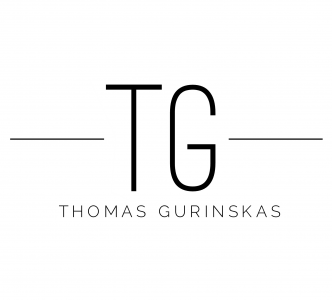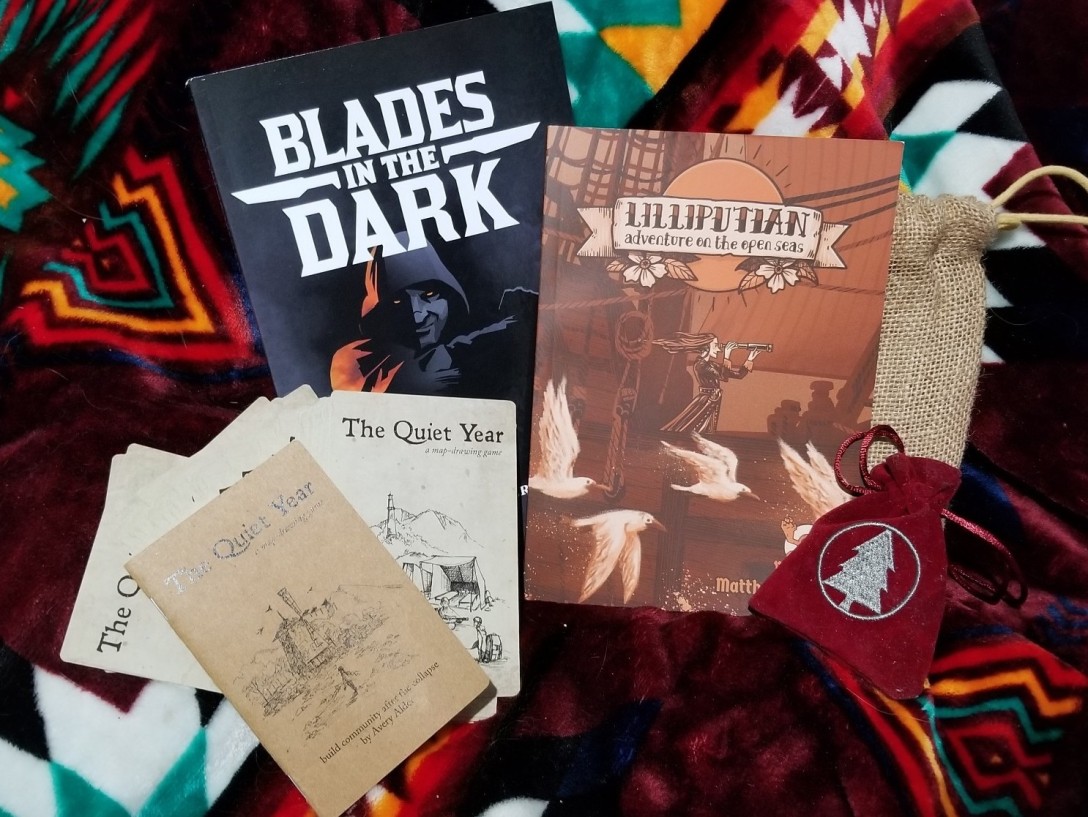There’s been a lot of hubbub recently surrounding Wizards of the Coast’s updated Open Gaming License, and while it appears that the worst of OGL 1.1 has been rolled back in iteration 1.2, trust has been broken and many fans remain wary at best and riotously upset at worst. With anxieties swirling it really does seem like a good time to be exploring other systems, which is always fun, but feels extra relevant at the moment.
Let’s start with Powered by the Apocalypse, which is a framework for games that have been built using core elements of the game Apocalypse World, among others. There are many, many PbtA games out there that will speak to a variety of interests. Like D&D, you play to specific classes, here called playbooks, and your selected playbook page also doubles as your character sheet. Unlike D&D, you’re rolling with two d6s instead of the full complement of d4 to d20. The three games I’m most familiar with are:
- The Veil, a cyberpunk world where life has become filtered through a digital “veil,” think constant VR overlay/Google glasses. I’ve been having a lot of fun playing it with a group of friends. I talk a bit about my character building process in my post on Jewish roleplaying games.
- Monster of the Week is about well, hunting monsters. It’s based on the style of the episodic monster hunt common in shows like Buffy the Vampire Slayer or the early seasons of Supernatural. A really fantastic actual play run of Monster of the Week is season two of The Adventure Zone.
- Urban Shadows is an urban fantasy game steeped in supernatural politics. It’s got vampires, werewolves, angels, ghosts and more living as rival/coexisting factions. This was the system used for The Adventure Zone mini campaign Dust.
A common thread of PbtA games is that they are incredibly versatile when it comes to personalizing both the world and your individual characters. For example, in Monster of the Week it is on the players to set up the final encounter with the monsters, and in The Veil there’s a move you can use to create an NPC that your character knows—of the course the quality of your role dictates how well that relationship is going.
Next up is Blades in the Dark. This game is Victorian-esque gothic with lots of crime and seedy underbellies. Or at least, that’s the world that Blades sets up for you—The Adventure Zone’s ongoing campaign, Steeplechase, puts the Blades system to use in a much more futuristic criminal environment. While I’ve never played Blades, I’ve really been enjoying the play style presented in Steeplechase and it prompted me to pick up a copy of the game for myself. I’m particularly interested the stress/trauma mechanic, wherein if you fill up your stress meter you’re levied with a trauma that sticks with your character. It’s very cool.
A game I have played, many times in fact, is The Quiet Year. It’s a communal map-making game, where you create and act as community over the course of a year, answering prompts on a deck of cards. I know that both Friends at the Table and The Adventure Zone: Ethersea have used The Quiet Year to develop cities/towns that larger campaigns take place in. While you aren’t supposed to have individual characters, some friends and I (a different group than the Veil group) have taken to playing The Quiet Year with preset casts, which allows for a different and new set of dynamics to emerge than might come out in a typical game. The first one we did we used a selection of crew and officers from the Franklin Expedition and our current game is based on the Donner Party.
Another staple of the role playing game world is the one-page rpg. They are everywhere and about everything, and they range from serious to silly, though the ones on my radar veer silly, like Honey Heist, where you play as bears trying to steal honey, or Dadlands, a post-apocalyptic world where everyone is a dad. Some other great one-page rpgs in my collection are:
- Lasers & Feelings, space exploration at its finest. You can check out The Adventure Zone: Hootenanny for an actual play experience.
- On the Path, a Witcher-inspired hack of Honey Heist. Your stats are “Hmm” and “Fuck.”
- Escape from Triassic Park, You are a genetically re-engineered dinosaur. What will you do?
- Potato, you are a halfling trying to tend to your potatoes, but things just keep happening.
Some other short games, but not quite one page short, are things like Northwest Passage, a Tunnel Goons hack; The Warmest Place to Hide, a The Thing-inspired game based on Caltrops Core, a d4-based system; and Lilliputian: Adventure on the Open Seas, which has a single page with all the rules amidst a more expansive zine about running an ocean adventure.
Lastly, it’s…. Monty Python’s Cocurricular Mediaeval Reenactment Programme. You can strewth (nat max)! You can spam (nat 1)! You can meet your favorite Flying Circus personalities! You get to roll with exciting, nontraditional dice, such as the d14, d16, d18 and d30!
While the rulebook isn’t out yet, there is a quick start demo available for free from the publisher, which I used to run a game for my family over the holidays — it was very fun and encourages you to make things up and get silly with it. Additionally, one of the co-creators ran a live play session during the Kickstarter, which is available to watch on YouTube. It also should be noted that you don’t need to have an encyclopedic knowledge of Monty Python for the game to be fun. Sure, when I ran the game it had been on the back of binging Flying Circus in its entirety three times in a row, but my players certainly hadn’t. It is, first and foremost, a role playing game, it’s just got added flavor.*

*I have been strongly reminded (I have not) that Monty Python’s Cocurricular Mediaeval Reenactment Programme is in fact a reenactment programme where you will learn about British history and should in no way be considered a role playing game.
UPDATE 1/27/2023: As it turns out Wizard’s of the Coast has completely rolled back their plans for an updated Open Gaming License.

